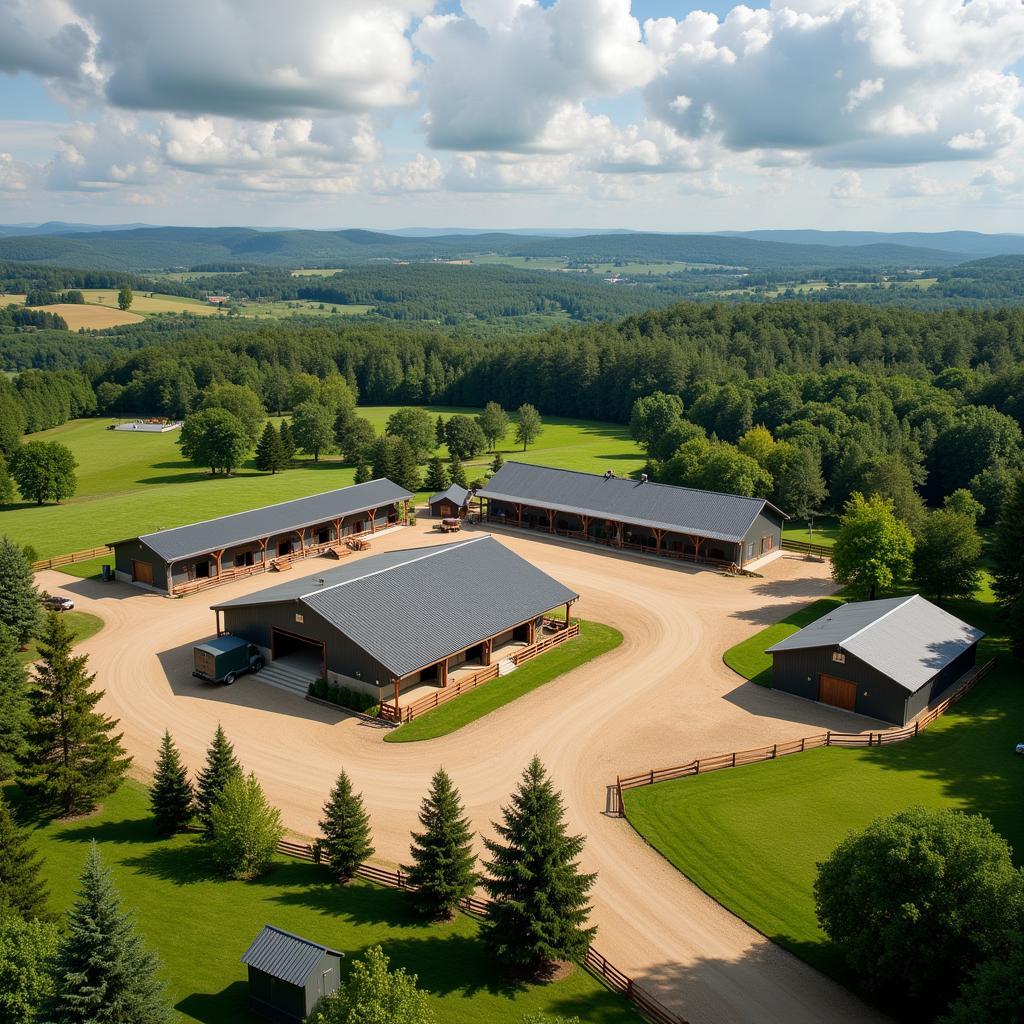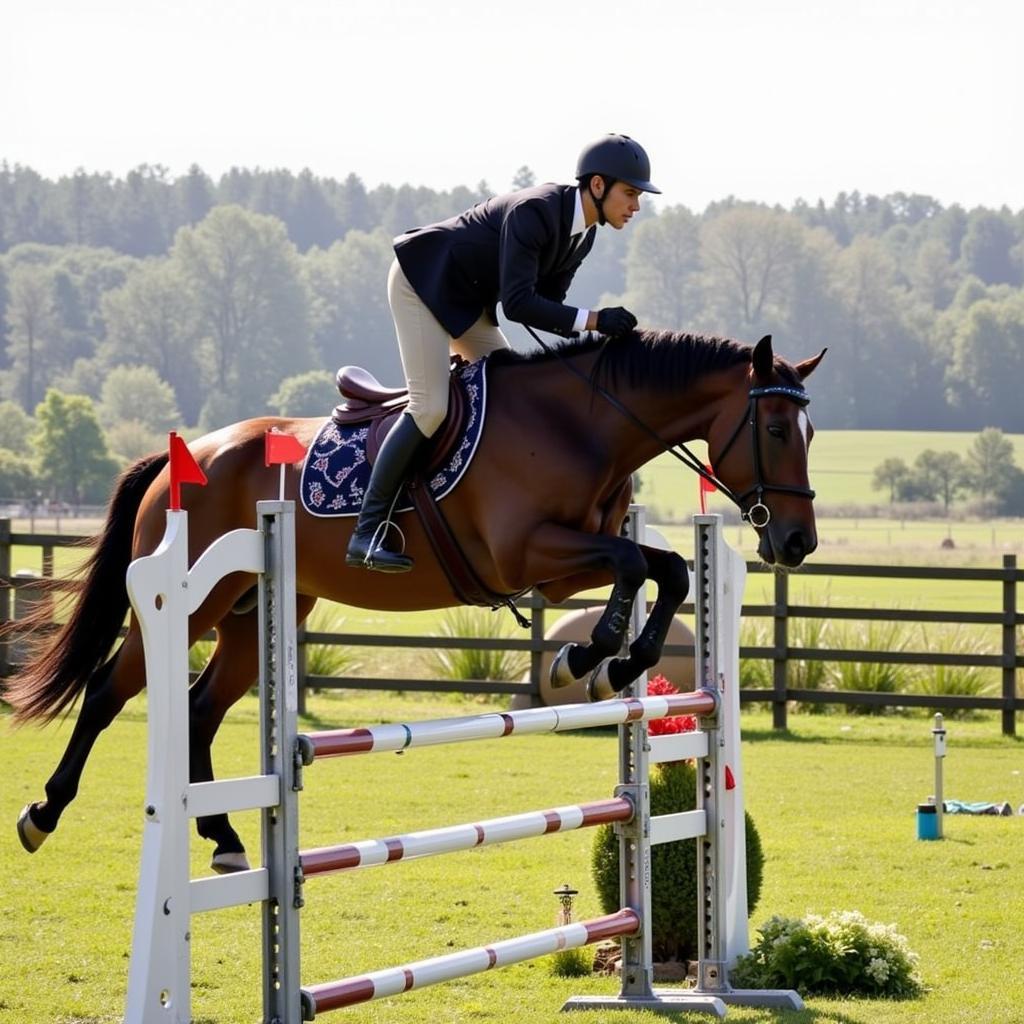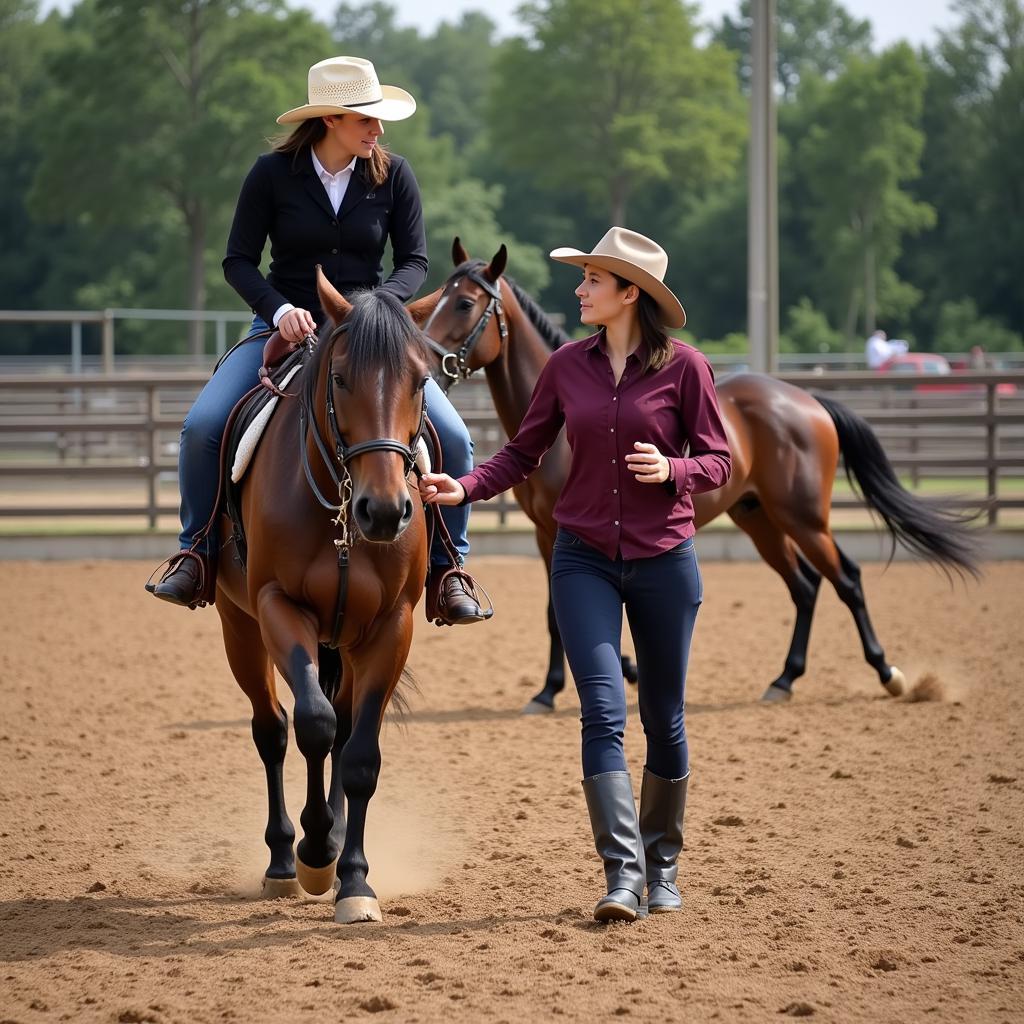Understanding the cost of horse training is essential for anyone considering equestrian pursuits. Whether you’re a seasoned horse owner or a first-time buyer, knowing the factors influencing training expenses can help you budget effectively and make informed decisions. This comprehensive guide will delve into the various aspects that affect horse training costs, providing you with valuable insights to navigate this crucial aspect of horse ownership.
Factors Influencing Horse Training Costs
Several factors contribute to the overall cost of training your horse. These can vary significantly based on your location, the trainer’s experience, the type of training required, and more. Let’s break down the key elements:
1. Trainer’s Experience and Reputation
As with any profession, experience matters. Highly sought-after trainers with proven track records often command higher fees. Their expertise and reputation can significantly impact your horse’s progress and success, making the investment worthwhile for many horse owners.
2. Training Discipline and Goals
The chosen discipline heavily influences the training cost. For instance, training a horse for dressage requires a different skill set and time commitment compared to basic riding skills. Similarly, training for specialized disciplines like reining or jumping will have varying costs.
3. Training Duration and Intensity
The length and intensity of the training program directly impact the overall expense. Intensive programs with longer durations will naturally cost more than shorter, less frequent sessions. Consider your horse’s age, temperament, and your personal goals when determining the appropriate training duration.
4. Boarding and Facility Fees
Many training programs include boarding for your horse, which adds to the overall cost. Boarding fees vary based on the facilities, amenities, and location. Factors like stall size, pasture access, and quality of care can all influence the price.
 Modern Horse Training Facility
Modern Horse Training Facility
5. Additional Costs
Beyond the primary training fees, additional expenses can arise, including:
- Veterinary care: Regular vet checkups, vaccinations, and potential treatments contribute to the overall cost.
- Farrier services: Routine hoof care from a farrier is essential and adds to the expenses.
- Equipment and supplies: You’ll need appropriate tack, grooming supplies, and potentially specialized equipment depending on the discipline.
Types of Horse Training and Their Costs
Horse training encompasses various methods and disciplines, each with its associated costs. Here are some common types:
1. Starting a Young Horse (Colt Starting)
Starting a young horse, also known as colt starting, involves foundational training for horses new to being ridden. This typically includes teaching basic commands, desensitization, and groundwork. Colt starting costs can range from $500 to $1,500 per month.
2. Basic Riding Training
Basic riding training focuses on developing fundamental riding skills for both horse and rider. This includes walk, trot, canter, steering, and stopping. Costs for basic training typically range from $300 to $700 per month.
3. Specialized Discipline Training
Specialized disciplines like dressage, jumping, reining, or barrel racing require specific skills and training techniques. These programs are often more intensive and demanding, with costs ranging from $700 to $1,500 or more per month.
 Horse and Rider in Jumping Competition
Horse and Rider in Jumping Competition
4. Problem-Solving Training
If your horse exhibits behavioral issues or riding difficulties, you might require specialized problem-solving training. This type of training focuses on addressing specific problems and can vary in cost depending on the complexity and duration required.
Tips for Managing Horse Training Costs
- Set a Realistic Budget: Determine your budget early on and communicate it clearly with potential trainers.
- Consider Group Lessons: Group lessons can be a more affordable option compared to private training sessions.
- Explore Part-Training Options: Some trainers offer part-training packages where they work with your horse for a set number of days or weeks per month.
- Discuss Payment Plans: Inquire about payment plan options to manage expenses over time.
Conclusion
Investing in horse training is crucial for the well-being and development of your horse, ensuring a safe and enjoyable riding experience. By understanding the factors that influence costs and exploring different training options, you can make informed decisions that align with your budget and goals. Remember that a well-trained horse is a happy and safe horse, making the investment worthwhile in the long run.
FAQs About Horse Training Costs
1. How much does it cost to train a horse for a year?
The annual cost of horse training can vary significantly depending on the factors discussed above. However, you can expect to pay anywhere from $3,600 to $18,000 or more per year.
2. Is it cheaper to train a horse yourself?
Training a horse yourself can save money, but it requires significant time, dedication, and expertise. If you lack experience, it’s recommended to seek professional guidance to avoid potential risks or setbacks.
3. What is the average cost of a horse trainer per hour?
Hourly rates for horse trainers can range from $40 to $100 or more depending on their experience, location, and the type of training provided.
4. Do horse training costs include boarding?
Not always. Some trainers include boarding in their fees, while others charge separately. Clarify this with potential trainers before making a decision.
5. How can I find a reputable horse trainer?
Seek recommendations from fellow horse owners, veterinarians, or local equestrian communities. Research trainers online, read reviews, and inquire about their experience and training methods.
6. Can I negotiate horse training costs?
While some trainers might have fixed rates, it’s always worth discussing your budget and exploring potential options or payment plans.
7. What happens if my horse requires additional training sessions than initially anticipated?
Communicate openly with your trainer about your horse’s progress and any concerns. They can assess the situation and recommend the best course of action, which might involve additional training sessions.
 Horse and Trainer in Training Session
Horse and Trainer in Training Session
Have More Questions? We’re Here to Help!
Choosing the right horse training program and understanding the associated costs is a significant decision. If you require further assistance or have specific questions, our team at Justus Horses USA is here to guide you. Contact us at Phone Number: 0772127271, Email: [email protected], or visit us at QGM2+WX2, Vị Trung, Vị Thuỷ, Hậu Giang, Việt Nam. We offer 24/7 customer support and are dedicated to helping you navigate the world of horse ownership. Explore more informative articles on our website, including insights on bar y quarter horses, horse for lease san diego, and horse boarding in medford oregon. We also provide valuable resources for those interested in mini horse service animal for sale. Let us help you make informed decisions for your equine partner.